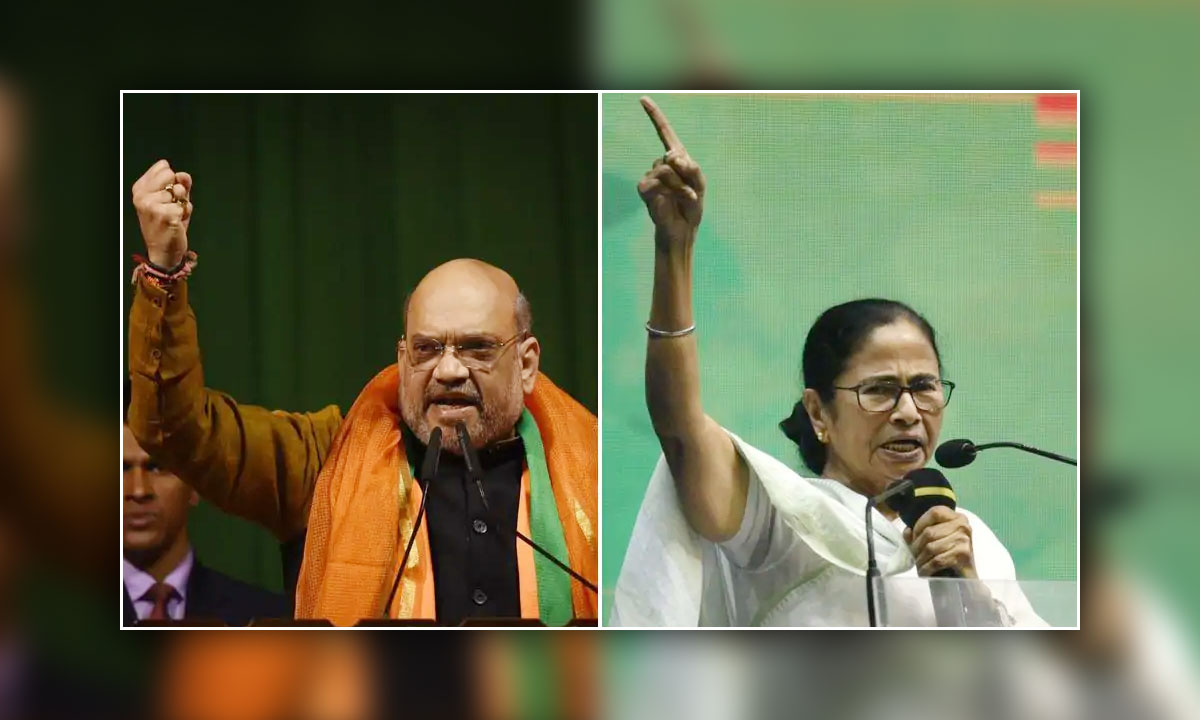“Can’t Venture Out Without The State Police Permission”: Central Team Pans Bengal On Covid-19 Response
Delhi: A central team sent to West Bengal to help the Mamata Banerjee government contain the spread of Covid-19 has told the Union Home Ministry that it wasn’t getting the basic logistics support or information from the state government but had still found gaping holes in its handling of the pandemic.
The Inter-Ministerial Central Team led by a senior IAS officer Apurva Chandra also pointed out that the BSF personnel accompanying the team for its security had been told right at the start of their visit that the central team should not venture out of the guest house without the state police’s permission.
The team had landed in Kolkata on April 20 (Monday).
“It seems they have been mostly stuck in the BSF guest house and been able to spend barely 6 hours in the field,” a senior home ministry official told the news agency. Home Minister Amit Shah has been briefed and is reported to be upset at how the central effort to help the states has escalated.
In the five days that the group of civil servants and health experts have spent in Bengal, Apurva Chandra told the Union home ministry that they had been able to make only two field visits to three hospitals and one quarantine centre. On their way back from their second field visit in Uluberia subdivision of Howrah district, they drove to a containment zone at Salkia.
The central team-led by Apurva Chandra is one of the many groups formed to help seven states fight the Covid-19 battle.
On the day the Centre had tasked Apurva Chandra’s team to visit Bengal, it had also formed teams to visit Maharashtra, Madhya Pradesh and Rajasthan. On Friday, it formed more teams to travel to Gujarat, Telangana and Tamil Nadu.
Bengal chief minister Mamata Banerjee had viewed the decision with suspicion soon after the first announcement came, first demanding to know the law under the teams were sent and later questioning the criteria for selecting the states.
Bengal has reported only 571 Covid-19 cases and 18 deaths till Saturday afternoon. But there have been several reports that the state government had been suppressing data about cases by restricting the number of people tested for the Sars-CoV-2 pathogen. Till just about five days ago, the state was testing only 400 people in a day. This figure, according to the central team, has gone up to 900.
But this, a central government official said, wasn’t as shocking.
Apurva Chandra told the home ministry that they had not been given a firm number of containment zones that had been formed in the state and there were huge gaps in the only one that they were allowed to visit.
The main task of the local administration in a containment zone where a hard lockdown has been ordered is to carry out surveys and surveillance activity through multidisciplinary teams in containment zones.
“Unless this is carried out simultaneously during the period of containment, no effective purpose would be served,” Chandra wrote in a letter to the state government on Saturday. This is his fourth letter to the Bengal government, the only mode of communication with the state.
But in Bengal, Chandra wrote, the IMCT had been informed that health professionals are not part of the surveillance team that is looking for possible Covid-19 patients. Chandra’s team was told that they are likely to join only on Monday.
In his previous letters to West Bengal chief secretary Rajiva Sinha, the team had pointed to anomalies including a waiting period of at least five days for test results of patients in isolation wards; the possibility of dead bodies lying on beds in wards for four hours; and the lack of social distancing at hospitals.
The Bengal government had responded at a media conference, insisting that the team was free to travel and health officials would look into the points made by them.
Chandra’s latest letter alluded to this response. “The stand of the state government on facilitating the visits of the IMCT and ensuring the safety and security of the team members as also providing information and records may be made clear through a written communication rather than through media so that further steps can be taken by the IMCT,” he said.


